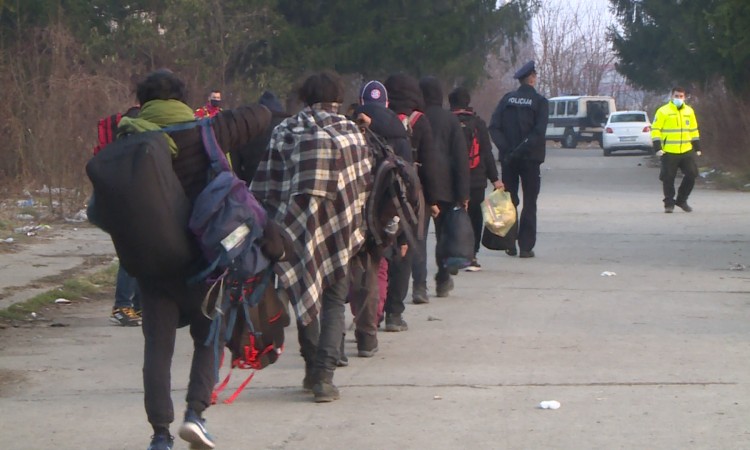Several hundred migrants and refugees are still staying on their own in improvised makeshift camps in the area of Bihać and Velika Kladuša, regardless of the worsening weather conditions. Such a decision is primarily explained by the close proximity to the border zone with the Republic of Croatia, i.e. an easier way to try to reach the destination in the European Union.
Abdul from Afghanistan has been staying in an improvised camp in the woods near Velika Kladuša for several months, and he has already tried to cross the border with the Republic of Croatia five times.
- The conditions in this camp are of poor quality, however, the border is in the immediate vicinity, so it is much easier for us to organize an attempt to cross. I have specifically tried five times, but each time I was stopped by the Croatian police. They confiscated my documents and mobile phone and sent me back to Bosnia and Herzegovina. My wish is to bring my family to a safe country in the European Union, so I will continue - said Abdul.
Unfortunately, the uncontrolled stay of migrants and refugees in abandoned buildings and such types of improvised camps caused an increase in the number of cases of disturbing public order and peace of the citizens of Bihać and Velika Kladuša, which was confirmed by the Una-Sana Canton Police Administration.
Minister of Internal Affairs of the USC, Nermin Kljajić, confirmed that the works on the construction of the temporary reception center "Lipa" are in the final phase, but that there is still no official information when the first migrants will move into the newly built camp.
The number of beneficiaries of the services of the temporary tent settlement at the Lipa site changes almost daily, although most of them are satisfied with the current living conditions.
